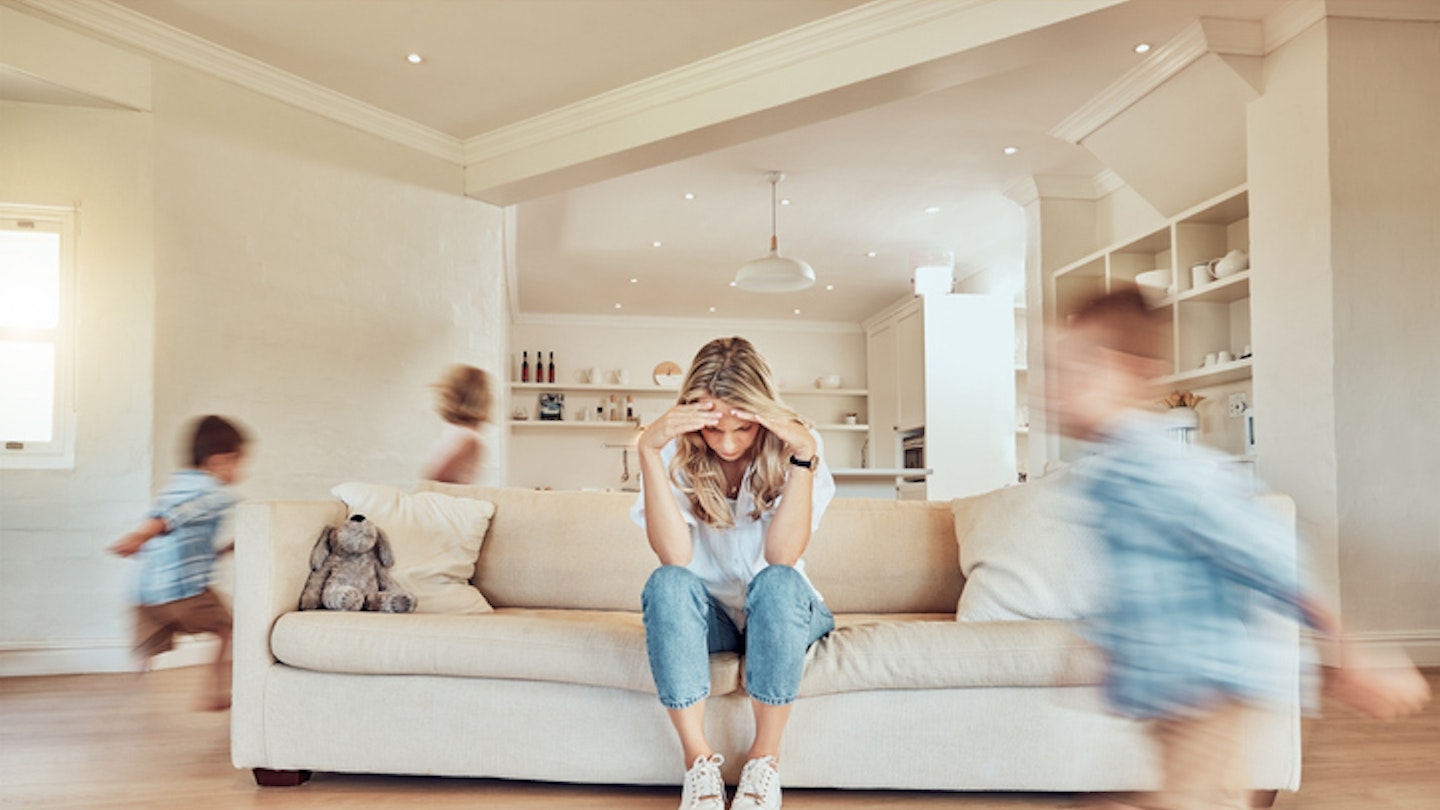Most parents are guilty of losing their temper every now and again. Whether it's the struggle for bedtime after a long day at work or a sibling fight that just won't end, there are countless scenarios where the feelings of overwhelm can just get too much, and it feels like the only option left is to snap.
So imagine the guilt many parents felt yesterday as their timelines were flooded by headlines like 'Yelling at kids can be as harmful as sexual or physical abuse: study.'
In fact, if you managed to read beyond the headlines before feeling hugely shamed and worried, you'd have found there's a huge distinction between 'yelling at kids' and what the study was exploring - and no one is saying that snapping at your child to stop hitting their sister makes you a terrible parent.
The new research actually found that over 40% of children are exposed to verbal aggression, verbal hostility or harsh verbal discipline from adults around them. For half, the experience is at least weekly - and for 10%, it is a daily experience. The study, published in the journal Child Abuse & Neglect, explored the long-term impact this behaviour has on children, and found it leaves them at greater risk of self-harm, drug use and ending up in jail.
The authors of the study said verbal abuse is ‘characterised by shouting, yelling, denigrating the child, and verbal threats.’ Prof Shanta R Dube, a US expert in child abuse and a co-author of the study, said: ‘Often adults are unaware of how their shouting tone and criticising words, such as "stupid" and "lazy" can negatively impact children, particularly if that is how they experienced being parented.’
When asked what the most upsetting words used were, children said ‘you’re useless’, ‘you’re stupid’ and ‘you can’t do anything right’. The best things they could hear in comparison were ‘I am proud of you’, ‘you can do it’ and ‘I believe in you’.
The results of this study are worrying to read, of course. And there's plenty of research to support the idea that authoritarian parenting does more harm than good. Studies have found that children of authoritarian parents are at an increased risk for anxiety and depression, exhibit more disruptive behaviour and are more likely than other kids to have low self-esteem.
And verbally abusing or constantly berating children is never ok.
But the dramatic headlines yet again oversimplified things and became just another stick to beat parents - most of whom are trying their best and panic they're not on an hourly basis.
There is a distinction between actually hurting children through verbal abuse, which is what the study focuses on, and occasional bursts of 'mum rage' - overwhelming fits of anger that arise during pregnancy, postpartum and years after. And, of course, moments when parents of both sexes feel overwhelmed and lose it. That's typically driven by burnout and exhaustion, and accompanied by feelings of guilt and shame. One mum tells Grazia she feels ‘horrible’ when she shouts at her children, which comes from feeling ‘massive rage bubbling up’ when she looks after them on her own.
‘I try to give myself a break when I do snap - parenting demanding children with loads of energy is relentless, and none of us get enough help (or sleep!),’ she says. ‘It feels like another unrealistic expectation of parenthood – we’re supposed to have the patience and calmness of a hostage negotiator on four hours sleep a night while a small child stamps up and down on our feet, screams in our faces and demands snacks every 10 minutes for 12 hours a day.’
She adds that there are a 'couple of times' where she's 'really lost it' with her children, after which the feelings of guilt set in. '[These were] times when my expectations for how I wanted them to behave were totally unrealistic and unfair. But maybe that’s just a good tip for parenthood – set your expectations for most things low in the first place, then you’re less likely to lose it,' she says.
The concept of 'Mum Rage' is typically seen as a taboo, but in recent years it has become more widely spoken about. Last year, Netflix released The Lost Daughter, a film which features some familiar scenes of a mother – at the end of her tether - struggling to juggle work and the demands of young children. And in 2019, artist and author Minna Dubin penned a vital essay on the topic in the The New York Times’ parenting section titled _'_The rage mothers don’t talk about.'
It's important to recognise that parents are human, not martyrs, who, like most people, occasionally lose their temper. Under no circumstance is this ever an excuse to verbally abuse a child. But if you did raise your voice a little louder than expected or slam the cupboard door today, this doesn't mean you've engaged in verbal abuse - and it doesn't make you a bad parent. Instead, take a deep breath and forgive yourself.
